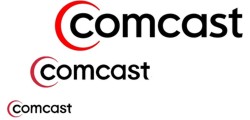- REVIEWS
Displays Electronics 
Speakers Sources 
Other Gear Software - TOP PICKS
- HOW TO
How To Buy 
How To Use 
Tech 101 - BLOGS
- NEWS
- FEATURES
- INSTALLS
Custom Installation - SUBSCRIBE
Court Knocks FCC Cable Limit

In 1992, consumer outcry against cable industry practices led to the Cable Television Consumer Protection and Competition Act. The law brought some limited regulation of cable rates. It also forbade one company from hogging more than 30 percent of the market, preventing cable ops from having undue control over content. As ArsTechnica succinctly explains: "Congress wanted to keep any one cable company from getting so large that it could single-handedly cause a TV channel to fail by refusing to carry it."
The FCC put the law into practice, deciding on a 30 percent market cap. Meantime, the satellite market has grown into a two-player oligopoly, and the FCC ignored a court order to incorporate that into its calculations. The ball is now in the FCC's court. Since the commission is under new management, it should be interesting to see how this issue plays out.
So who would benefit from this latest twist in the cable regulation story? We're looking at you, Comcast.
- Log in or register to post comments
| Displays Electronics Speakers | Sources Other Gear Software | Top Picks of the Year Top Picks | Custom Install How To Buy How To Use |
Tech 101
|
Latest News Features Blogs | Resources Subscriptions |
WHERE TECHNOLOGY BECOMES ENTERTAINMENT
 © 2025 Sound&Vision
© 2025 Sound&VisionAVTech Media Americas Inc., USA
All rights reserved
























































